20 YEARS OF POLAND IN EUROPEAN UNION - UNIVERSITY FOR EUROPE

The Festival of European Knowledge and Culture, organised by Jan Dlugosz University in Czestochowa (October 13-14, 2024), is over.
The first day of the event was entitled: Day of Celebration and Integration "University for Europe – Together We Can Do More".
It was marked by an open event, in which ev eryone could take part, regardless of age, address or other restrictions... Thanks to it, the participants could learn about the culture, traditions and past of the countries that make up the European community.
– We celebrated the 20th anniversary of Poland’s accession to the structures of the European Union – explains the Rector of JDU, prof. Janusz Kapuśniak. - Each participant: child, pupil or adult could see the richness of tradition and diversity of Europe. Judging by the moods, the event turned out to be a success, as it was of great interest among the inhabitants of Częstochowa, as well as the inhabitants of the entire region. The Festival was attended by nearly 2 thousand people. Attractions were numerous. You could use the energy of your own muscles to make a delicious fruit juice (producing energy used to drive the juicer thanks to the use of a specialised device resembling a bicycle), take part in workshops on preparing delicious pizza, play chess (slightly larger than those we usually have at home), play and arrange large blocks or learn how soap or Spanish fans are made. Many participants – mainly children – participated in playing on inflatables or tried their hand at improving their football technique. The artistic part met with great interest, where artists from the Vocal Ensemble of the Department of Music of JDU made a big sensation. They presented European works that the audience knows well and likes to have fun with. However, the performers made sure that the presented pieces were made a little differently, i.e. according to their own idea. The track list included songs popular in Europe by bands such as ABBA, 0-Zone, or Helena Vondráčková. It aroused applause and certainly enriched the event!
The guests participated in:
1. The zone of family Italian pizza making workshops
2. Inflatables zone for children
3. Mega games zone: chess, scrabble, cornhole, mini golf
4. VR Zone - a virtual journey through Europe
5. Face painting zone for children in European colours
6. Food truck zone with European cuisine and more
7. Fan making zone for Spanish and French soaps
8. European Sports Zone
9. Artistic workshop zone
10. European photo booth zone.

Main stage programme:
12.00-12.15 – Presentation of events and attractions
12.15-12.30 – European show – dance shows (Spain)
12.30-13.30 – Kindergarten performances
13.30-14.00 – European Show – Dance shows (France)
14.00-14.30 – Opening ceremony of the festival
14.30-15.30 – European Music Concert
15.30-16.00 – Freestyle – Stage shows and interactive workshops with the audience
16.00-16.20 – Rapper MIKSER – "Europe can be liked" part I
16.20-16.40 – European Show – Dance shows (Germany)
16.40-17.00 – Freestyle – Stage shows and interactive workshops with the audience
17.00-17.15 – Results of the competition "The Most Beautiful European Creation" and award ceremony
17:15-17:30 – Rapper MIKSER – "Europe can be liked" part I II
17.30-18.00 – Folk Ensemble – concert for the finale




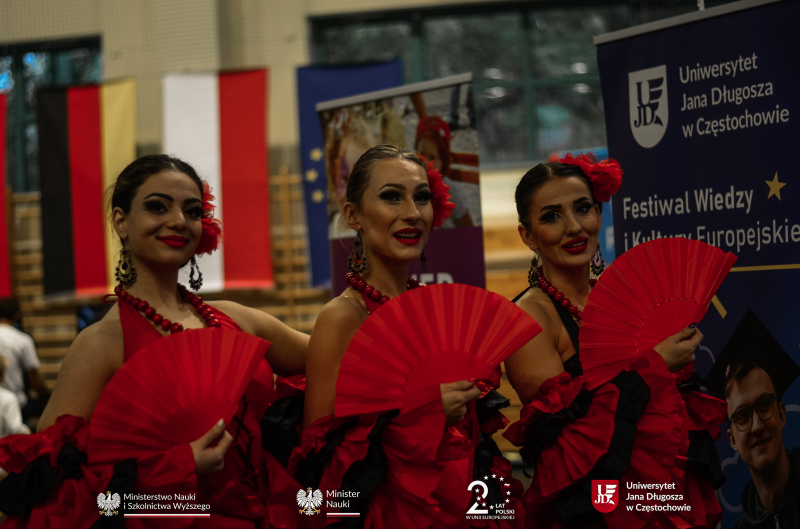
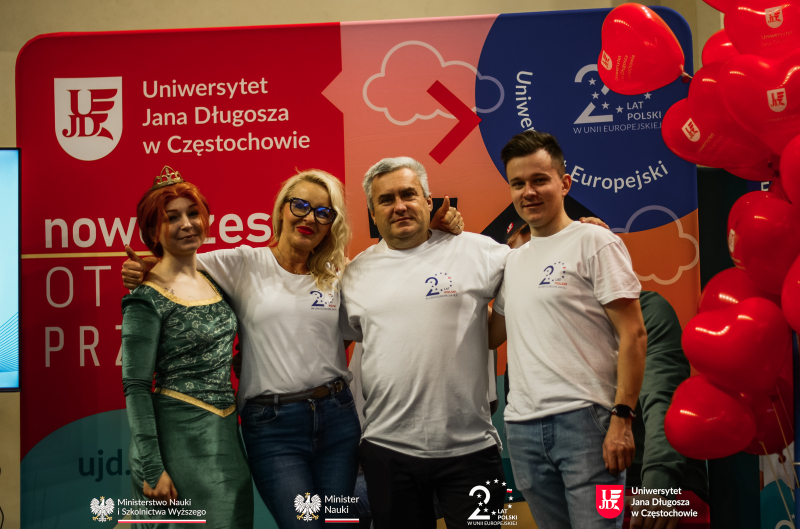
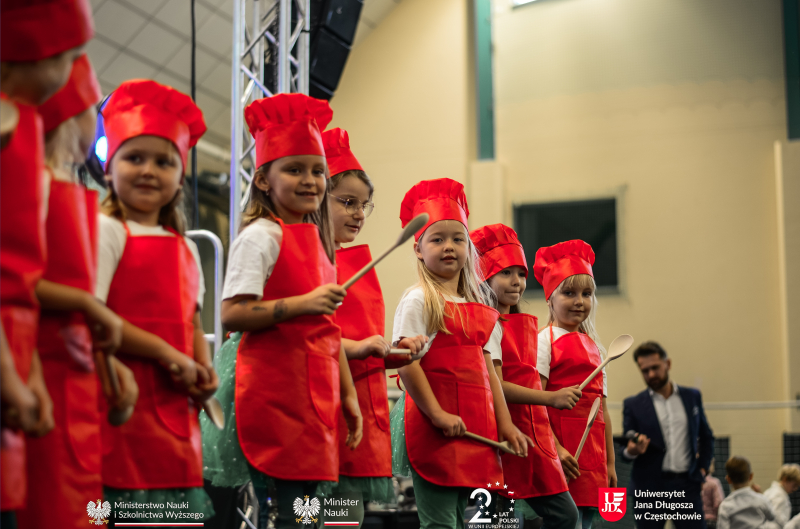
The second day of the Festival of European Knowledge and Culture – "Together in the EU"
With the participation of invited guests and numerous listeners who came to participate in the forum, the second day of the Festival of European Knowledge and Culture took place (October 14, 2024 at the Auditorium Maximum, Waszyngtona 4/8). The participants were welcomed by the Rector of JDU, prof. Janusz Kapuśniak, who opened the meeting with a brief summary of the last two decades of Poland’s membership in the structures of the European Union. He emphasized not only their importance in the general context, but also focused on the benefits that are related to the University.
- 20 years of Poland’s membership in the European Union have been of great importance for the reconstruction of the Polish economy – explains Rector prof. Janusz Kapuśniak. – The past period was also marked by the dynamic development of the University, which managed to obtain nearly PLN 120 million, which was used for various projects.
Among the projects implemented with the participation of EU funds, there are investments (e.g. ACS buildings or the seat of the Faculty of Law and Economics were built), but also others of a didactic, research and development, social or staff management nature. A lot of funds were obtained and used for the implementation of the Erasmus+ programme, thanks to which many employees, students and doctoral students participated in trips to foreign academic centres.
A lot of space was devoted to the benefits of Poland’s participation in the structures of the European Union during the Forum entitled "Together in the European Union". To make it easier to distinguish specific thematic areas, they have been divided into six panels:
panel I: European Universities Initiative
European Universities Initiative, i.e. presentation of international university partnerships, which is the flagship undertaking of the European Commission in the field of higher education. This initiative was proposed by French President Emmanuel Macron at the Sorbonne University in 2018 and aims to integrate and strengthen the competitiveness of European higher education. The announcement of the creation of European Universities was initially treated with scepticism, although later formal work began, which resulted in the announcement in 2019 of the first call for proposals for the creation of European University Alliances. The European Commission has offered the alliances of universities financial resources for the implementation of generally defined activities, as well as a number of indirect benefits and opportunities for additional funds. In this way, the European University Alliances directly influence internationalisation objectives, promote European values and identity, and improve the quality and competitiveness of European higher education. During the discussion panel, people directly involved in building and running European Universities in five Polish universities took part in presenting their experiences and challenges they had to face in connection with running the following Alliances:
- EUNICE, Poznan University of Technology (leader);
- EU4Dual, Koszalin University of Technology;
- Challenge. EU, University of Warmia and Mazury in Olsztyn;
- COLOURS, Jan Dlugosz University in Czestochowa;
- KreativEU, Opole University of Technology
The panel was chaired by prof. Marcin Sosnowski, Vice-Rector for Cooperation and Internationalisation of JDU. The discussion was attended by: dr Annette Klingert (COLOURS Managing Director Padeborn University), dr inż. Aneta Kucińska-Landwójtowicz (Vice-Rector for Cooperation, Opole University of Technology), prof. Mariusz Głąbowski, (Vice-Rector for International Cooperation, Poznan University of Technology), prof. Krzysztof Wasilewski (Vice-Rector for Education and Student Affairs, Koszalin University of Technology), prof. Paweł Wielgosz (Rector's Plenipotentiary for the European University, University of Warmia and Mazury in Olsztyn).
panel II: Internationalisation
The aim of the panel was to present the issue of internationalisation of science seen from several perspectives: the experience of people holding managerial positions at the university, responsible for the area of science and conducting scientific research, or implementing projects in international cooperation (including the Horizon 2020 project) and in the context of the requirement of internationalisation of science as an element in the procedure for awarding the degree of habilitated doctor and the title of Professor.
The panel was chaired by prof. Bogusław Przywora, Vice-Rector for research of JDU. The discussion was attended by: prof. Stanisław Kistryn (Head of the National Chapter Poland, Deputy Chairman of the General Council of Science and Higher Education), prof. Grzegorz Węgrzyn (Deputy Chairman of the Council of Scientific Excellence at the University of Gdańsk), prof. Zygmunt Lalak (Vice-Rector for Research at the University of Warsaw), prof. Maria Moulin-Stożek, (Main contractor of the Horizon 2020 UJD project), prof. Małgorzata Makowska-Janusik (Chairwoman of the Council Disciplines of Physical Sciences of JDU).
Panel III: Culture, art and sport – the universal language of Europe
The panel, in its assumption, touched on sport and art as a universal language, and was also a pretext to look for analogies for both of these fields as shaping the creative attitude. The possibilities offered by functioning in the area of (fragile) freedom, which we have been observing in recent years, have been an inspiration for considerations on how to shape culture in order to maintain the integral importance of the concept of freedom for the individual and the possibilities of deciding how to constitute one's own authorial path.
The panel was chaired by prof. Jakub Jakubowski, Vice-Rector for Education and Student Affairs of JDU. The discussion was attended by: dr hab. Bartosz Frączek (Head of the Department of Painting of JDU), dr Maciej Zdanowicz (visual artist, education specialist, Jan Kochanowski University in Kielce), Jakub Jelonek (JDU graduate, Bieganie.pl), Andrzej Szewiński (Member of the Polish Parliament).
Panel IV: Cooperation between science and industry
The discussion panel concerned the transfer of knowledge, technology and human resources, taking place at science, local government and industry levels. The participants of the discussion tried to answer the following questions: what the current cooperation between the science sector and entrepreneurs is, what role technology transfer centres, local governments and organisations supporting the economic development of regions play in the transfer process, as well as what challenges all participants of this process face in order to improve and tighten mutual business relations.
The panel was chaired by dr Kordian Chamerski, Technology Transfer Specialist of JDU. The discussion was attended by: dr inż. Gabriela Konopka-Cupiał (Director of the Centre for Technology Transfer CITTRU, member of the Coordination Council of PACTT Jagiellonian University in Krakow), prof. Edmund Golis (Head of the Centre for Knowledge Transfer and Innovation in the Field of Science and Art of JDU), Anna Tymoshenko (Head of the Investor Service Centre of the COI of the City Hall in Częstochowa), Joanna Okularczyk (Member of the Management Board of Test Systemy Uszczelniące sp. z.o.o.), Tadeusz Szymanek (Member of the Council of RIPH in Częstochowa, owner of FPHU Green Pack).
Panel V: Joint education for the development and integration of regions
The panel "Joint education for the development and integration of regions" became a discussion forum devoted to the role of education in strengthening cooperation between different regions. It focused on exploring how educational systems and joint learning programmes can contribute to sustainable development and inclusion at both national and international levels. The aim of the panel was to develop strategies supporting the harmonious development of regions by investing in education, with an emphasis on international cooperation, which is conducive to increasing socio-economic cohesion and knowledge exchange. The main thematic areas of this meeting included: educational cooperation, sustainable development, regional integration.
The panel was chaired by prof. Anna Nowik-Zając, Vice-Dean for Education and Student Affairs at the Faculty of Social Sciences of JDU). The discussion was attended by: prof. Olga Binczyk (Vice-Dean for Education and Student Affairs at the Faculty of Humanities of JDU), prof. Małgorzata Kurek (JDU), prof. Bożena Woźna-Szcześniak (Vice-Dean for Education and Student Affairs at the Faculty of Social Sciences of JDU), dr Tamara Kyrylych (Chairwoman of the Team for the Education Quality Assurance System in the field of Mathematics of JDU).
Panel VI: Erasmus+ Programme
The experience of the coordinators of the Erasmus Programme, which in the 1997/1998 academic year was called "Socrates", was presented. It was mentioned that it was not possible (at that time) to easily contact the beneficiaries due to the lack of Internet, etc. Information was presented about the promotion of the Programme, which took place only by means of live meetings.
The key issues presented were: the participants who "paved the way", the reasons that prompted them to take the risk of the trip, with an explanation what values were most important: learning, language competence, getting to know new cultures, or personal development.
The panel was moderated by mgr Agnieszka Jeż-Jakubczak, a specialist at the Welcome Centre of Jan Dlugosz University. The discussion was attended by: Marta Iwańska (Foundation for the Development of the Education System Erasmus + InnHub Katowice), mgr Tomasz Górski (owner of Robex, Forma Company), dr Ines Załęska-Olszewska (research and teaching assistant at the Faculty of Humanities of JDU), dr Beata Rusek (research and teaching assistant at the Faculty of Humanities of JDU), dr Bartosz Stuła (research and teaching assistant at the Faculty of Humanities of JDU, tutor of the Erasmus Club UJD), Joanna Kretkowska (JDU student), Joanna Wrześniewska (JDU student), Katarzyna Wajda (JDU student).
The host of the entire event was mgr Bartłomiej Kowalik, the specialist in charge of the Department for International Cooperation of JDU.





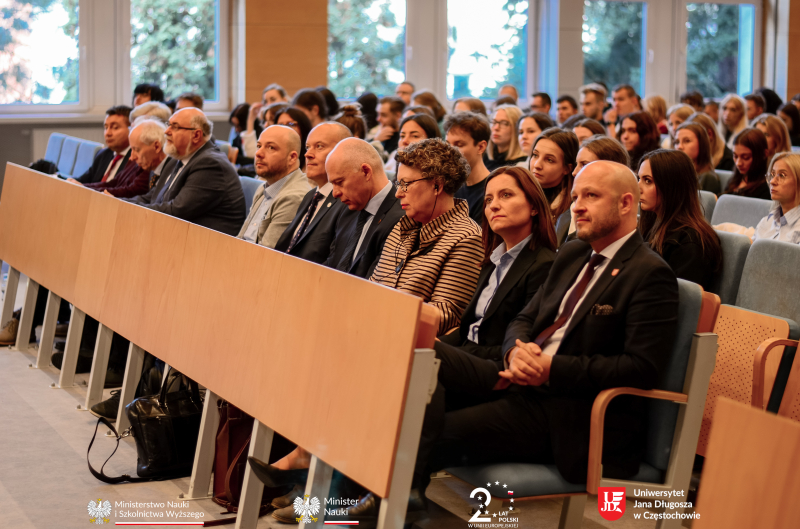

Summary of "Repressed Heritage. Old Testament Renarrations in Literature" Conference
On October 14-15, the Faculty of Humanities hosted a scientific conference entitled "Repressed Heritage. Old Testament Renarrations in Literature", which brought together a dozen or so researchers from Polish and foreign centres: London, Genoa, Pisa and Vienna. The aim of the meeting was to raise the extremely important issue of the presence of hidden Jewish themes in Polish culture, as well as the biblical tradition in the works of Polish Jews: assimilated or denying their identity, as well as Marans, moving between cultures and identities.
The theme of the conference, although considered in the context of Jews, touched on a broad phenomenon, which is the attitude of denial resulting from escaping suffering, which can be defined as persecution or social ostracism. Its effect was the process of conscious or unconscious cutting off from the native tradition. This phenomenon is close to people who shaped attitudes on the border of cultures, identities, at the junction of religions, customs and beliefs.
The main aim of the meeting was an attempt to build a scholarly reflection around the presence of a hidden narrative, immersed in a literary text, having biblical, Old Testament, Midrashic and Talmudic provenance, referring to biblical figures, rituals and rites of Jewish holidays. The richness of tropes, all kinds of Judaica, loci theologici in literature, identity and Maran stories turns out to be truly extraordinary. Behind this story, there is a rather unpleasant realisation that it was our monolithic culture that pushed the presence of Jewish culture out of consciousness.



The Festival of European Knowledge and Culture at Jan Dlugosz University in Czestochowa was organised thanks to the funds granted by the Ministry of Science and Higher Education. The series of events was devoted to the promotion of European values, integration of the academic and local communities, as well as discovering the diversity of culture and traditions of the European Union countries. The festival offered a wide range of attractions for participants of all ages – from educational workshops, debates, to concerts and animations for families with children.
The event was open and free of charge to all interested!
Accompanying events during the Festival:
1. Concert of the Vocal Ensemble of the Department of Music of JDU
2. Historical exhibition "20 years of Poland in the European Union" – JDU Library, AK 36a. The exhibition took place from 1 to 15 October 2024.
3. Art exhibition "20 YEARS – 20 STEPS – ARTIST IN EUROPE – ARTIST" – University campus
4. Scientific conference: "Repressed heritage. Old Testament Renarrations in Literature" with the participation of guests from Italy, Austria and the UK, organised by the Institute of Literary Studies of JDU in cooperation with NAWA - 14-15 October, building at AK 36a, Aula Humanitatis
5. Illumination in the colours of the European Union - the building at Armii Krajowej 13/15
Numerous questions from participants about subsequent editions of the event (in the following years) are the best recommendation that the Festival and its form have been received with great interest. It is worth adding that the Festival was unique in at least one more respect. It was financed by the Ministry of Science and Higher Education, and the ministry entrusted this task to only four universities in the country. In addition to the University of Częstochowa, similar events were also organised with the involvement of: the Catholic University of Lublin, the University of Zielona Góra and the University of Warmia and Mazury in Olsztyn.
The event was held under the honorary patronage of the Marshal of the Silesian Voivodeship, Wojciech Saługa.

The event was held under the honorary patronage of the Mayor of the City of Częstochowa, Krzysztof Matyjaszczyk.

Media partners:
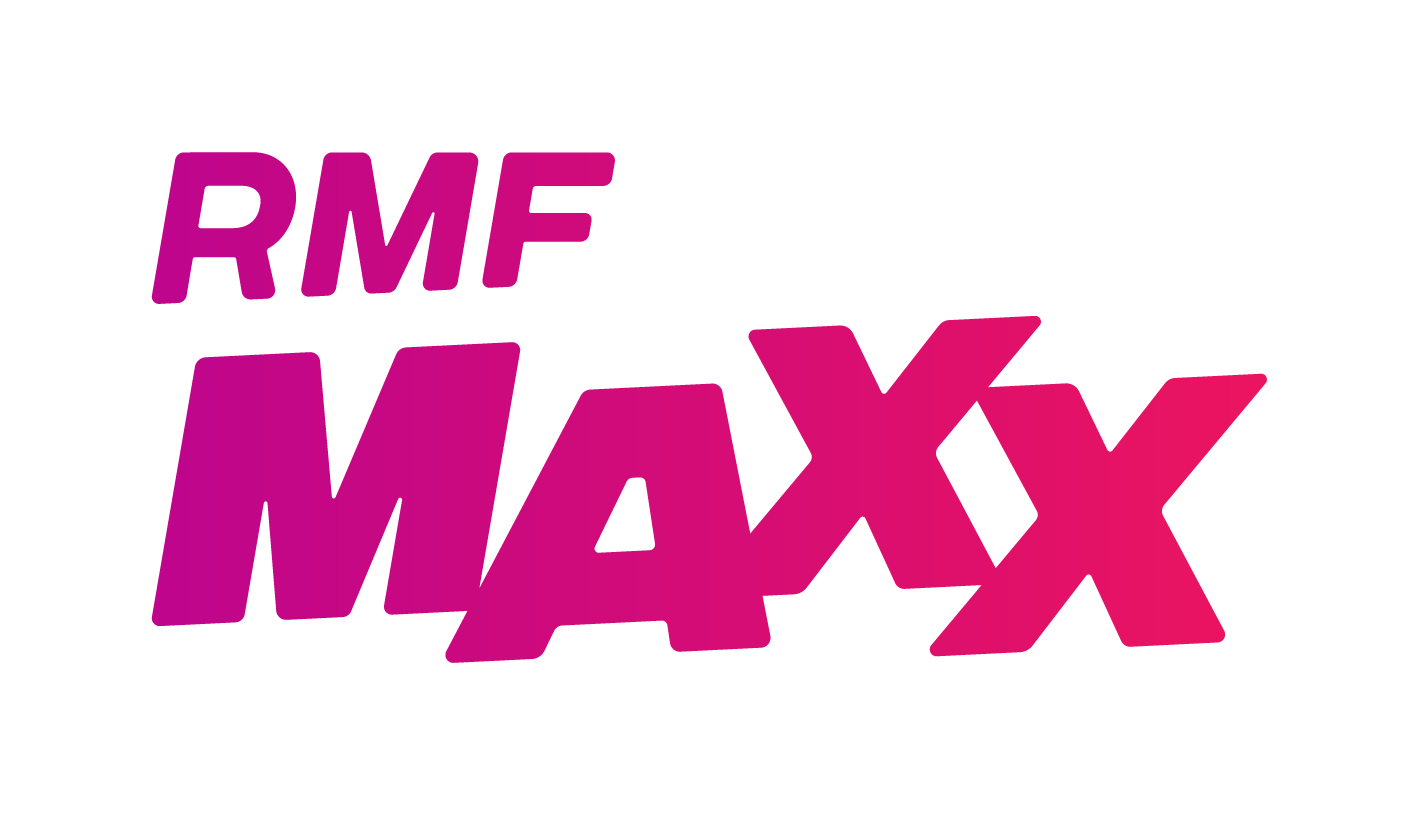


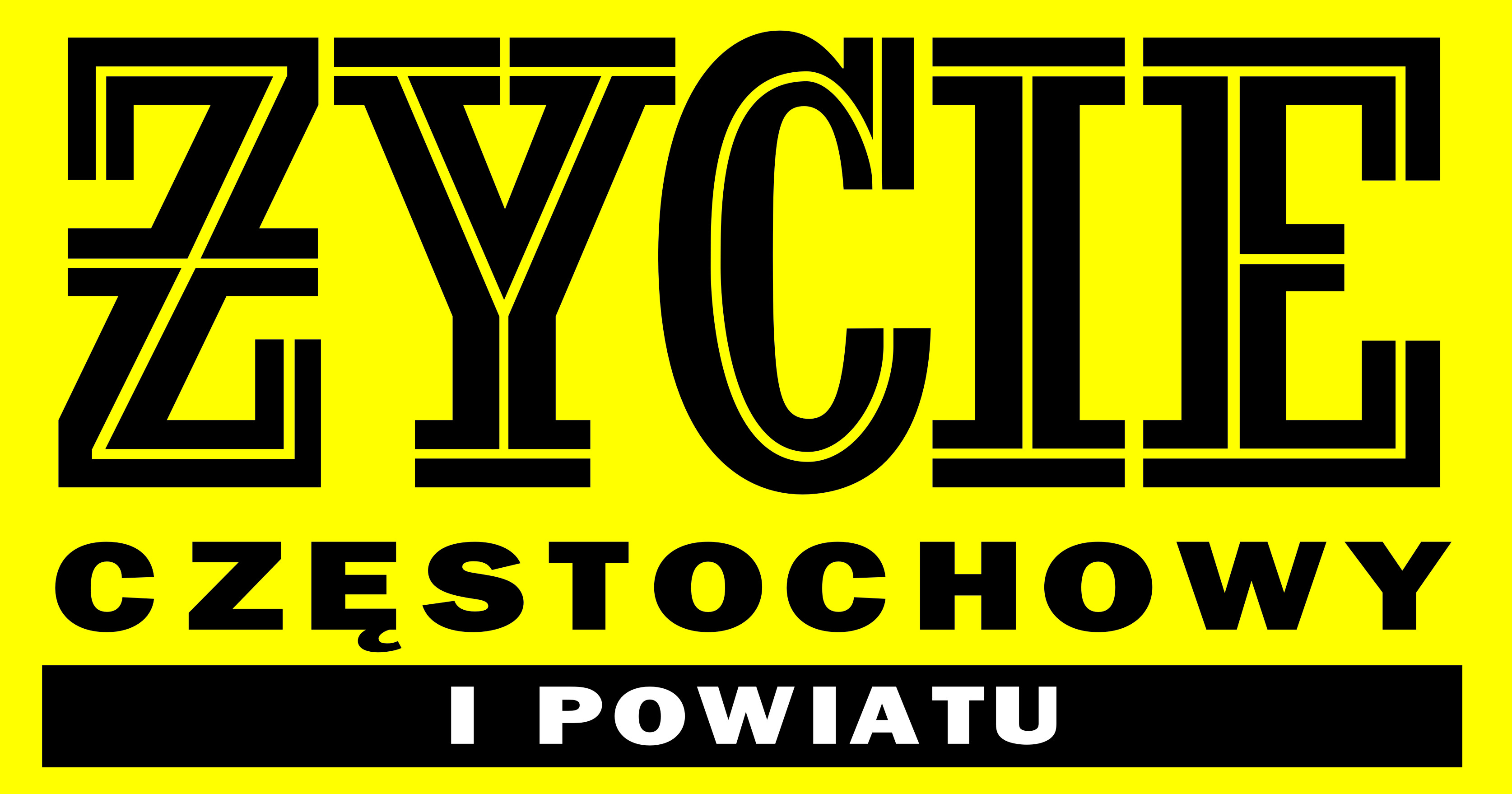
Date added: 17 October 2024

